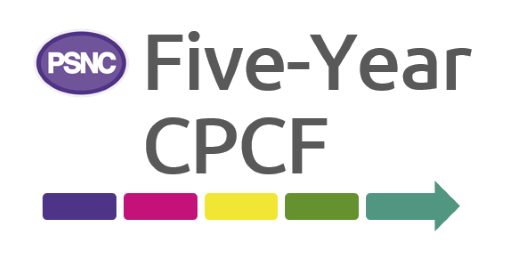Chief Executive’s Blog: July 2022
By Chief Executive Janet Morrison
“A failing NHS”, “unmanageable waiting lists”, “disgusting pay rises”, “heatwave crash”, “final straw” and “outrageous waits” … these are just some of the headlines that have featured in the healthcare press in this month alone. It’s clear that our health service – a national pride and joy, but more importantly, a lifeline to millions of people every year – is facing unprecedented challenges. Staff and patients alike are suffering, and the future is uncertain and perilous.
And this is just as true in our community pharmacies as it is in our hospitals and general practice. There is not just one problem, but a plethora of them, to solve, and all of them happening at a scale that you have never seen before. You are dealing with shocks in the global medicines market, spiralling costs, a workforce crisis and ever-increasing workloads and demands, all while pharmacy staff and businesses owners alike are exhausted.
I can see this in the pharmacy visits I am making. I see pharmacy teams supporting their local communities (with some patients even calling in just to say thank you), but on the other hand, I see staff flat out trying to solve problems, often faced by a constant stream of frustrated patients who cannot understand why their medicines are not there on demand, nor why some pharmacies have had to reduce their wider services or opening hours. I am frustrated for these patients, all of whom rely on life-changing (if not life-saving) medicines, and are rightly confused and worried when they are told they are not immediately available. But I am even more frustrated for the pharmacy teams trying to help them – teams going well above and beyond what should ever have been asked of them; teams at breaking point.
We are logging these issues on an almost daily basis as we hear from contractors and pharmacists in what I can only describe as desperation. The circumstances may vary, but the central story is the same: pharmacies, and the people who work in them are exhausted, worried, and most of all in desperate need of more help and support. Of course, there are some wider factors at play here as the nation looks to recover from COVID and faces a cost of living crisis, all while the dead hand of the Treasury makes itself felt across all aspects of government finance. But my view is also that the impact of the pharmacy funding settlement (which I don’t regard as flat but falling) was being masked in the last couple of years by the injection of COVID-related funding and enhanced retained margin. The underlying effect is chilling and is starting to have a severe impact.
We know that Government and the NHS know this, because we are passing these stories on to them, and we have put a wealth of evidence and analysis of the scale of the problems, both financial and operational, to them. We have pulled together a compelling portfolio of evidence on all these factors and the inflationary pressures that are impacting the sector and made the case for additional funding and for specific funding for a Walk-In or Pharmacy First Service in our negotiations. And we continue to raise these issues with the Department of Health who I speak to on a weekly basis, logging that pressures appear to have worsened in the last couple of months. Senior MPs have also heard the message, with some calling for an urgent workforce plan for the sector only this week, and others clear on the urgent need for pharmacies to be given more help, and sustainable funding.
This is all what everyone here at PSNC is also working for. During our negotiations we have been very aware that primary care contracts – including that which was being imposed on the GPs – are not departing significantly from the five-year frameworks already set. But nonetheless we have made the case for additional funding very strongly and will continue to do so: we are determined to do everything in our power to get the support that pharmacies now desperately need.
Some problems may not be in our gift to solve – inflationary rises are inflicting great pain across all sectors; and although we continue to fight hard every month for price concessions, we have no powers to influence the wider medicines market – but whatever we can do, we will do, to make the case for the help that you need. In the short-term that means pushing as hard as we can through and outside the negotiations. But we are also looking to the future, and I believe the bigger prize will be the medium-term when we negotiate what comes after the end of this five-year CPCF deal. Before then, we have a short window in which to unite the sector behind a shared vision for the future, and build support for that future, and that is work we are already focusing on.
Pharmacies have real expertise in how to best meet the needs of communities in prevention, long term conditions and health inequalities. We know that Ministers want more of this and want pharmacy to be part of the solution to the wider healthcare problems: to them we say yes please, we are ready to help… but we can only do so if you will help us first. The sector needs to be on a sustainable footing to have the capacity to deliver more for patients and the public.







